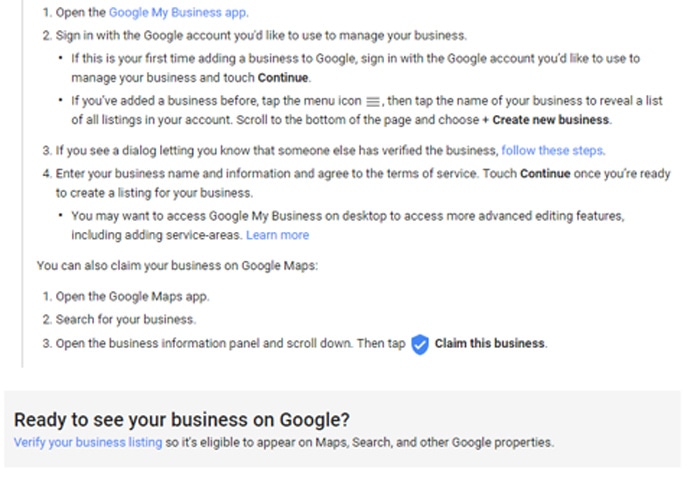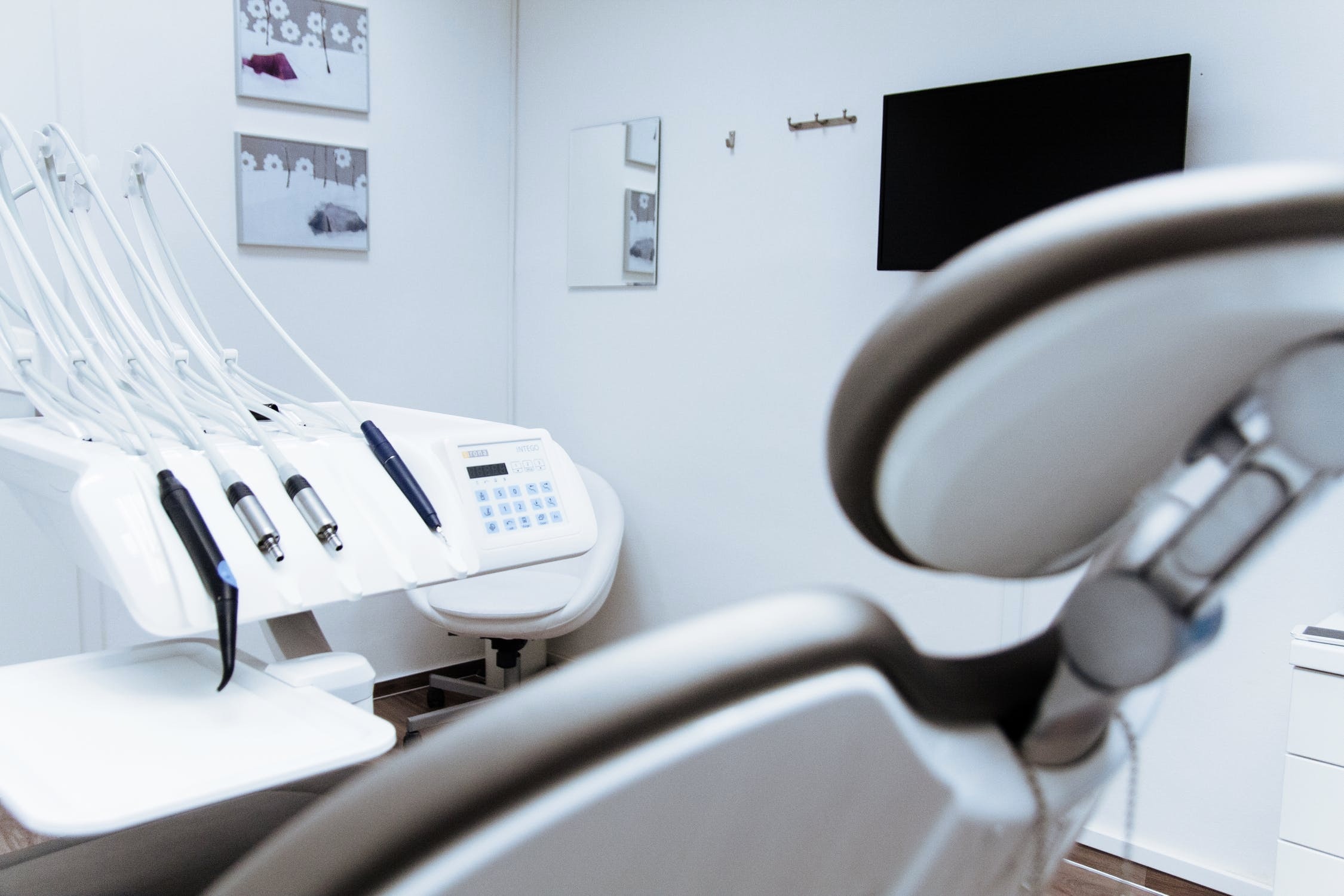Lessons from a NH SEO Agency
Imagine this: You’re running a successful dental practice (or any local business for that matter). You have regular clients. You have a functional website, and maybe even post on social media every once in a while. You’re able to pay the rent and utilities each month, as well as your staff. Business is good, but it could be better.
What if there was a way to grow your business simply by showing up where people are looking for your products or services? You may already know, or have guessed, that there is a way to do this – with SEO. What many businesses don’t fully understand, however, is the difference between SEO and local SEO, and more importantly, how focusing on local SEO can help you grow your local business.
SEO vs. Local SEO
Search engine optimization (SEO) helps you get your business in front of your ideal customers by optimizing your on and on-page content using relevant keywords and high-quality content. You’ve likely heard the term by now, and may even be sick of hearing it.
SEO is a technique that any business or organization can (and should) use to increase their visibility online. An international toy retail store and a small New Hampshire dental practice can both employ SEO strategies to increase lead generation and conversions online. However, each of these businesses would use slightly different methods of keyword research and analysis to reach their ideal target audiences.
For example, the national toy retail store would be targeting children and parents of appropriately aged children all over the globe. Though their target audience is still very specific, their customers can be based anywhere in the world. They would still need to use relevant keywords and content that is useful and educational for their ideal buyers, but focusing on one or more specific geographic locations wouldn’t be the best use of their marketing dollars.
The small New Hampshire dental office, on the other hand, would need to target a very specific geographic area. Their marketing budget wouldn't be well spent targeting potential patients all over the world. It wouldn’t make sense for them to market their services to California or Colorado residents, or to those living in Europe or Asia. Instead, they would likely invest in marketing to New Hampshire residents living in or nearby their office locations.
This is the basis behind local SEO, but of course, it’s a bit more complicated than that…
The Power of Local SEO
Local SEO is something that any local business should pay attention to. If your business has a physical location and depends on patrons finding your location via online search, or if you provide services to a specific geographic location, then you should care about local SEO. Why? Because Google does. But also, because your customers do, whether they realize it or not.
Did you know that, according to Google Internal Data, “nearly one-third of all mobile searches are related to location?”, and, that “search interest in ”open now” has tripled in the past two years?” Much of the time, people are searching for products and services that can be purchased or ordered from somewhere nearby. Our searches have become more demanding, because people today expect to find what they’re looking for right now, and they expect to able to get a product or service almost instantaneously.
What that means for local businesses is that there are likely shoppers and customers out there looking for your products and services right now. They are searching on their phones, tablets, desktops, or maybe even a combination of the three. In the case of the New Hampshire dental practice, if they show up in local searches for “dental practice near me” or “dental services in NH”, their competitors will.
Even if a dental office ranks for “best dental services in the USA”, or “affordable dental services”, they won’t show up in geographically-specific searches unless they harness the power of local SEO, utilizing keyword phrases like “best dental services in NH”, or “affordable NH dental services”. And their competitors – simply by taking the basic steps to optimize for local SEO – can increase their visibility by taking advantage of local searchers who want to find a dentist nearby, right now.
Optimizing for Local SEO
Optimizing your business for local SEO is relatively easy. It can’t be done overnight, and it’s not something that can be done with the click of a button. There are several key steps to follow, and there is some ongoing maintenance required. But local SEO is something that any business can optimize for and keep up with, as long as they are willing to invest the time and effort.
Here are the basic steps to get started in optimizing your business for local SEO:
1. Claim and Verify your Google My Business Listing.
If your business operates out of a physical location, or you have a shareable address for your headquarters, your first step should be to claim and verify your listing. Here are details on how to verify your business on Google, provided by Google. If you’re using a mobile application, you’ll see the following instructions to claim your business listing:

A slightly different set of instructions will appear for those using a desktop computer. From there, you can verify your business listing, which Google also provides detailed steps on how to do.
2. Review and Update Your Google My Business Listing (Ongoing).
Now that your business listing has been claimed and verified, you can review it for errors, and make updates as necessary. You can add categories to help people find your business, update your phone number, hours of operation, and include high-quality images that you want potential customers to see when they first click on your profile.
3. Determine How You Want Your Business to Be Listed Online – NAP.
Before you go any further, it’s important that you decide how you want your business name, address, and phone number (NAP) to appear online, regardless of where it is found. If your business name is Awesome New Hampshire Smiles, Inc., then you may want to list your full business name, or simply Awesome New Hampshire Smiles. Just be sure to decide before you begin submitting your business information to multiple online sites.
4. Correct Inaccurate Online Listings and Remove Duplicates.
This next step should really take place before you look to add your business listing to additional online directories. You may wonder how your business got listed anywhere without your “permission”, but it’s highly likely that you’ll find many existing listings for your business that may or may not be accurate or completely up to date.
Do your best to correct them and update them. Some online listing organizations will require a paid membership for you to maintain your listing, while others are free. It’s up to you to decide what you’re willing to invest to maintain your company image. There are also companies that will update all of your online listings for you, for a fee, of course. Yext offers Listing Management, and Moz offers a local solution for small businesses, for example.
5. Add New Online Listings to Local Directories.
Once you’ve corrected and/or updated as many listings as you can, including Google My Business, your next step is to add your business listing to local directories that you feel would increase the visibility of your business. You don’t have to add your listing everywhere, but you’ll want to be sure to add it to high profile sites, like Yelp, Bing, and Yellow Pages, and similar sites where people search regularly for local businesses.
When adding your business listing to any site, don’t forget to make sure that it is listed the same way every time. This helps those searching for your business to verify that they have found the one they’re looking for. If all of your listings are slightly different, potential customers may wonder where you’re actually located, when you’re actually open, or if your business is even still operating at all.
6. Update Your On-Page SEO to Reflect Your Location.
This is one step that many businesses miss when doing local SEO. While your website may be well-optimized for the services or products you offer, you’ll want to add some references to your location into your keywords and metadata as well. For example, a NH dental office should include keywords that reference New Hampshire or even specific New Hampshire towns.
7. Get Online Reviews and Respond to Them.
If you don’t have any online reviews yet, you’ll want to get some as soon as possible. Obviously good reviews are best, but it’s important to be careful how you go about getting reviews. Google doesn’t like paid reviews, and they’ll likely take them down just as fast as they went up.
The best way to get good reviews is to consistently offer exceptional customer service, and to be honest and open with your customers. And bad reviews aren’t the end of the world. Just don’t ignore them. Respond genuinely and honestly, and your customers are likely to appreciate your concern.
8. Get Social.
This probably (hopefully) won’t be your last step, but we wanted to make sure to include it here, because social media is one of the best ways to control what people who visit your local business are saying about you. From liking, sharing, and commenting to tagging and reviewing you, social media platforms like Facebook, Twitter and Instagram are great ways to stay in the loop when it comes to listening and participating in conversations about your business.
Beyond simply putting up a profile on a few social media sites, it’s important to monitor them and to engage with your followers on a regular basis. The more accessible you or your social media persona/manager appears to your audience, the more likely they are to want to do business with you. Plus, if your business is genuinely awesome, your followers could become some of your most powerful brand ambassadors, and they’ll do it for free! And, all of the social chatter around your business and brand adds up to great visibility in search engines.
This may sound like a lot of work, and, it is. Whether you need a little guidance or ongoing assistance, you can always hire a NH SEO agency – like SMILE media – to help! Contact us today to find out how to grow your business with local SEO.








